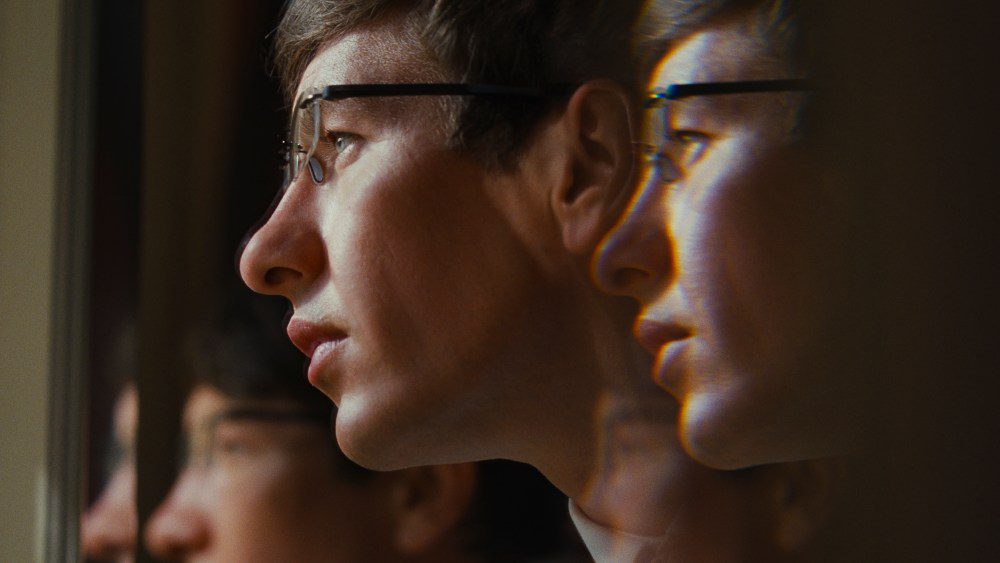SPOILER ALERT: This story discusses major plot points, including the ending for “Saltburn.”
In the final moments of Emerald Fennell’s “Saltburn,” Sophie Ellis-Bextor’s 2001 song, “Murder on the Dancefloor” pumps out over the speakers, while Barry Keoghan’s Oliver dances stark naked through a grand estate house in the British countryside. “Everything is diabolical, but it’s exhilarating,” Fennell explained. “It’s post-coital, euphoric, solitary and it’s mad.”
Cinematographer Linus Sandgren said the scene is about Oliver feeling as if he owns the place. In capturing it, Fennell used 11 takes before she got the right take from Keoghan. “They were all very beautiful,” she said. “It’s quite a complicated and technical camera. A lot of the time, he was immensely patient because there was a lot of naked dancing. Take #7 was technically perfect. You could hear everyone’s overjoyed response, but I had to say ‘sorry’ because it was missing whatever it was that made Oliver that slightly human messiness. So, we had to do it a further four times.”
Speaking at the film’s premiere, Keoghan joked, “I think we got it on the fourth take, but people just wanted to keep seeing me dancing.”
“Saltburn” welcomes audiences into the echelons of the upper class within British society and the Catton family. Elspeth (Rosamund Pike), Sir James (Richard E. Grant), daughter Venetia (Alison Oliver) and Felix (Jacob Elordi) wear cufflinks to dinner, indulge in champagne, play tennis and have songs written about them — namely Pulp’s “Common People.” They own an estate they call Saltburn, and Keoghan’s Oliver is the poor soul Felix meets at Oxford University and invites Ollie to spend the Summer with him. Ollie becomes fodder for the family to poke fun at and humiliate. One scene has him singing karaoke to “Rent” by the Pet Shop Boys. As he sings, “I love you, you pay my rent” he realizes what’s happening, and the lyrics reflect his place.
But “Saltburn” takes a twist. Spoiler alert – Oliver has been pushed to the brink, and being enamored with Felix and the Cattons come to a halt. When Felix takes Ollie on a surprise road trip for his birthday, Felix uncovers some truths about his friend – Ollie’s dad didn’t die, and his mother is not an alcoholic. Ollie, it turns out, is not all he seems to be. His welcome reception is over, and Felix wants him out, but things suddenly turn into a family tragedy as Ollie kills them, one by one.
Fennell said the film needed a moment of jubilation for its protagonist. “We do need to be on his side, and the thing for me, it was always about getting to this sense “I think this film needed a moment of jubilation because Oliver is our protagonist. We need to be on his side. For me, it was always about getting it to this sense that by the end, you just think ‘Why the fuck not?’ How complicit can we be? Do it and we’ll laugh, and we’ll love it. We’ll understand. That euphoric madness has to be ours as well as his.”
The scene took place on a closed set with a skeleton crew, but Fennell needed a team to help pull it off. Choreographer Polly Bennett worked with Keoghan on perfecting the moves. Keoghan said, “We worked really hard on it to find a comfortable place.”
Fennell said, “It needed to have that otherworldly fantasy sequence feeling. The edge where he feels like he’s just fucking going for it, but it doesn’t feel messy. The speakers had to be set up so the moment you appear in that room, there’s no lag. It was the technical things. And nobody could watch the monitors except for me, Linus, Polly and Sam, our script supervisor.”
Fennell, who first saw the actor in Yorgos Lanthimos’ “The Killing of a Scared Dee,r” called him ”incredibly talented. We push each other all the time in a really thrilling way. When it comes to stuff like it, there was never a question. He’s got to just dance to Sophie Ellis-Bextor naked through the house, and he’s like, ‘Yeah, of course. He completely understands that. “We push each other all the time in a thrilling way. When it comes to stuff like it, there was never a question. He’s got to just dance to Sophie Ellis-Bextor naked through the house, and he’s like, ‘Yeah, of course.’ He completely understands that.”
Keoghan added, “There was no hesitation because it moves the story forward.”
As for Sandgren’s camera moves, he pointed out that Oliver was always in frame for most of the film. “But this way, we see him full-figured. I think it was clear we wanted to follow him. Following him through that scene felt more natural to watch everything about him, and watch from the outside. It’s about his physicality and how he feels in that moment.”
Furthermore, the scene is an inverse of the tour Felix gives Ollie when he first arrives. “We’re given a tour of the most beautiful house in England, and we don’t see the house, we see him. He shows him the staterooms first, and it ends in the King’s bedroom where the last scene begins, and obviously, he’s been
sleeping there. This is where he lives. It’s an act of marking his territory,” Fennell said. “It’s his place now, and he can do whatever the fuck he wants.”
